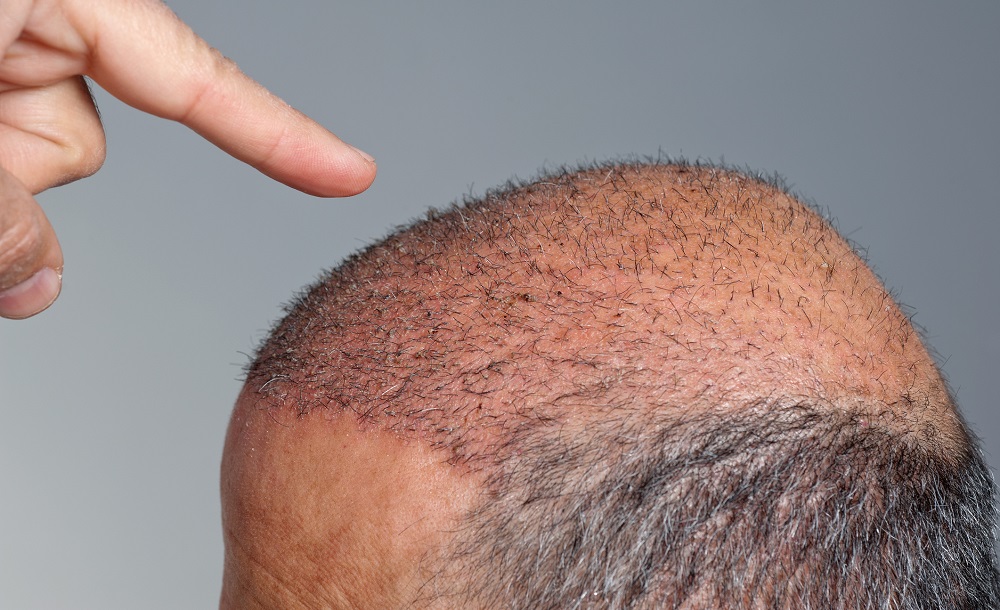Do not go baldly into that good night
A scientist gets to the roots of hair loss in a study published at the end of January, saying baldness is due to metabolic changes and free radical damage – and suggests ways to solve the problem. [This article first appeared on LongevityFacts. Author: Brady Hartman. ]
Why We Grow Bald
Scientists have identified at least nine mechanisms that underly the aging process, the so-called hallmarks of aging. While there are many factors that contribute to baldness, including hormonal changes, two of these hallmarks have been implicated in age-related hair loss in women in a study published in late January of this year.
A team led by Thomas Dawson in collaboration with scientists from the Medical University of South Carolina (MUSC) suggests that free radical damage combined with the slowing of the metabolism as we age could be the drivers of age-related hair loss, which primarily affects women.
Dawson, a researcher with A*STAR’s Institute of Medical Biology, says that the majority of hair research has focused on balding men; however, his study focused on women.
Hallmarks of Balding
Dawson’s study used cutting-edge laser microscopy on plucked human and pig hair to better understand hair growth at the molecular and metabolic levels.
In particular, Dawson’s team examined the role that mitochondrial metabolism and its by-product, reactive oxygen species, a type of free radical, play in the bioenergetics of the hair follicle.
“As we age mitochondrial energy production slows, so we end up with a reduced ability to make good hair,” Dawson says, adding “Any time there is a screw up in your metabolism you lose hair. People who go on crash diets, students undertaking exams, all will lose hair—only a small change in metabolism makes a noticeable difference.”
Hair growth is an energy-intensive process, Dawson says, who points out that the average human grows almost two meters of hair over their body per hour. As Dawson points out,
“It takes about 670 kilojoules of energy to grow one gram of hair, which is the equivalent of six minutes of intense exercise using both arms and legs.”
Dawson believes that hair follicles burn enormous amounts of energy. The researcher describes the process as being much like “driving a car with both feet down hard on the gas.” Dawson adds,
“The motor is running absolutely flat out and as a result there is excess reactive oxygen generation in the hair follicle that actually damages the structure. The follicle then loses its ability to continue to operate at full form over time.”
Blame it on the Ring of Fire
Dawson’s team also uncovered a previously unknown region in the hair shaft which they called the ‘ring of fire’ because it is a significant source of reactive oxygen species.
Dawson says his study shows that hair follicles and growth are more complicated than previously thought. More importantly, his research suggests that quenching the formation of reactive oxygen species and maintaining mitochondrial metabolism could be the secret to improving hair quality as we age.
“If we use materials such as leave-on creams or lotions that alter metabolism you can change the way hair grows and make follicles survive longer and produce better hair.”
Related: A Japanese scientist announces a way to grow hair follicles at a record rate.
Show Us Some Love
- Share this post on social media and help us spread the word– It only takes one click on any of the social media links on this page.
- Follow us on social media – Google+ or Reddit
- Sign up for our email list – We use your email to notify you of new articles. We will not send you spam, and we will not share your email address. You can cancel at any time.
- Tell us what you think – Scroll down to enter your comments below.
References
Cover photo credit: Credit: Turan Sezerr / Getty Images(iStock).
“The age-old search for a cure for hair loss may be close to an end.” Agency for Science, Technology and Research (A*STAR), Singapore. January 29, 2018. Link to the press release in MedicalXPress.
Lemasters, John J. et al. “Compartmentation of Mitochondrial and Oxidative Metabolism in Growing Hair Follicles: A Ring of Fire.” Journal of Investigative Dermatology, Volume 137, Issue 7, 1434 – 1444 July 2017 Volume 137, Issue 7, Pages 1434–1444. Link to the journal article.
Disclaimer
Diagnosis, Treatment, and Advice: This article is intended for educational and informational purposes only and is not a substitute for qualified, professional medical advice. The information and opinions provided herein should not be used during any medical emergency or for the diagnosis or treatment of any medical condition. Consult a qualified and licensed physician for the diagnosis and treatment of any and all medical conditions. Experimental treatments carry a much higher risk than FDA-approved ones. Dial 9-1-1, or an equivalent emergency hotline number, for all medical emergencies. As well, consult a licensed, qualified physician before changing your diet, supplement or exercise programs.
Photos, Endorsements, & External Links: This article is not intended to endorse organizations, companies, or their products. Links to external websites, mention or depiction of company names or brands, are intended for illustration only and do not constitute endorsements.

I wonder how the free radical and slowing metabolism theories can explain why some men only lose little hair even though they show all other signs of aging. And why do women rarely become bald? Their metabolism doesn’t slow down? I think as long as the exact biochemical pathways that lead to hair loss as we age are unknown, everything is just wild speculation. I find it much more plausible that hair loss and graying hair have important sociobiological functions because those signs of aging send signals to other members of the community. This would mean that hair loss is genetically programmed which would explain the differences I mentioned above.